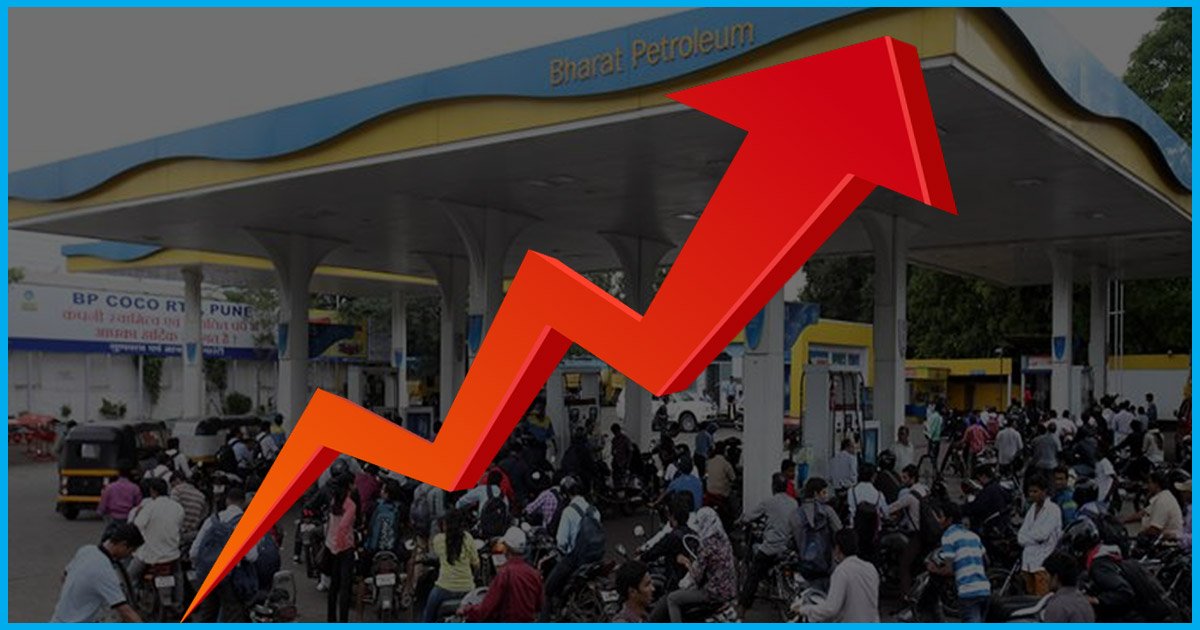
Even As Fuel Prices Rise, Govt Earnings From Petroleum Products Increased 3 Times In Last 5 Years: RTI
27 Sep 2017 9:48 AM GMT
Editor : Sudhanva Shetty Shetty
Writer, coffee-addict, likes folk music & long walks in the rain. Firmly believes that there's nothing more important in a democracy than a well-informed electorate.
The price of petrol and diesel has increased in major cities across India since the government initiated the dynamic pricing system where fuel prices are upgraded every day rather than every fortnight.
The increase in price has been particularly marked in Delhi, Chennai, Mumbai and Kolkata.
The price of petrol and diesel has increased in major cities across India since the government initiated the dynamic…
Posted by The Logical Indian on Tuesday, September 12, 2017
An RTI response has revealed that even as fuel prices rise, government revenues are benefitting from the high price of petroleum products. During the financial year 2016-2017, the government reportedly earned a whopping Rs 2.67 lakh crore revenue on account of several increases in indirect taxes (excise, customs and import duties) on such products.
The RTI was filed by social worker Chandrashekhar Gaur of Neemuch district in Madhya Pradesh. Gaur asked for the revenue accruing each year from 2012-13 until 2016-17. The data he procured was thus:
2012-13: Rs 98,602 crore
2013-14: Rs 1,04,163 crore
2014-15: Rs 1,22,926 crore
2015-16: Rs 2,03,825 crore
2016-17: Rs 2,67,000 crore
This data indicates that government earnings from petroleum products increased three times over five years. This is chiefly due to the increase in indirect taxes over time.
Furthermore, according to IANS, which procured the RTI copy, while the revenue earned in 2012-13 from the sale of petrol was Rs 23,710 crore and from diesel Rs 22,513 crore, in 2016-17, petrol and diesel fetched Rs 66,318 crore and Rs 1,24,266 crore revenue respectively.
Going by these figures, it is clear that diesel is earning the government more revenue than petrol today, whereas the situation was reversed five years ago.
This explains the rise in commodity prices: since agriculture, transportation, industries etc. use diesel more than petrol, an increase in diesel price will translate to an increase in prices of the commodities. And the price of diesel has increased by six times since 2012.
Gaur was quoted by IANS as saying that petroleum products should also be brought within the ambit of Goods and Services Tax (GST), which is only logical and would be beneficial for the consumers. Besides, he also proposes a mechanism wherein if the prices of crude petroleum rises beyond a certain limit, the effective tax rates start coming down.
Fuel prices on the rise
Following the inception of the dynamic pricing system on June 16, the price of petrol went down for two weeks. But the prices have increased continuously since then.
On June 16, petrol cost Rs 65.48 per litre in Delhi. By July 1, it went down to Rs 63.09. But since then the price has gradually increased; today, it costs Rs 70.30 per litre.
Similarly, in Mumbai, on June 16, petrol cost Rs 76.75 per litre in Delhi. By July 1, it went down to Rs 74.3. As of September 11, it costs Rs 79.41 – the highest since August 2014.
Kolkata and Chennai, too, are paying Rs 7 more on petrol than they were paying in July.
On the other hand, the price of diesel has also risen by Rs 5 per litre since July 1.
Petrol & Diesel Prices Are Soaring To Highest In Years
Petrol prices in Delhi have crossed Rs 70/Lt and are approaching Rs 80/Lt in Mumbai. Basically, fuel prices are gradually increasing all across the country. Know about it #In2Minutes.
Posted by The Logical Indian on Wednesday, September 13, 2017
Also read:
 All section
All section













